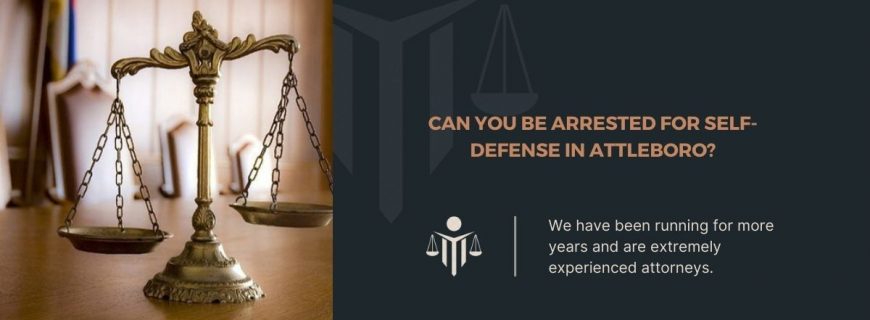
Can You Be Arrested for Self-Defense in Attleboro?
In a society that prioritizes personal safety and security, understanding the nuances of self-defense laws is paramount. Individuals have the right to protect themselves and others from harm, but can self-defense actions ever lead to an arrest? In Attleboro, like in many places, self-defense is a valid legal principle, but there are circumstances where the line between self-defense and criminal behavior can blur.
We suggest booking an appointment with the right criminal defense lawyer in Attleboro, MA. Let’s dive deeper into the subject in this blog.
The Legality of Self-Defense in Attleboro
Self-defense, a fundamental right upheld by the laws of Attleboro, allows an individual to use reasonable force to protect themselves or others from imminent harm or danger. However, the key lies in the term “reasonable force.” What constitutes reasonable force can vary based on the situation, the level of threat, and the perception of the person defending themselves.
In Attleboro, the legal system follows the principles of reasonable force, which means a person can use force that is necessary and proportionate to the threat they are facing. It’s essential to note that excessive force or using force in situations where it is not warranted can lead to legal consequences. An experienced criminal defense lawyer in Attleboro, MA, can guide you the best in such a scenario.
When Can Self-Defense Lead to Arrest?
While self-defense is generally protected under the law, there are scenarios where it can lead to arrest and legal proceedings. Here are some situations where self-defense actions might result in arrest:
- Excessive Force
If an individual uses force that goes beyond what is necessary to protect themselves or others, it can be considered excessive. The law only allows the use of force that is proportional to the threat. If someone inflicts severe harm or death when a less extreme response would have sufficed, they may face legal repercussions.
- Retaliation or Aggression
Self-defense is about protecting oneself from a threat, not retaliating or acting aggressively. If a person initiates a confrontation or escalates a situation unnecessarily, claiming self-defense might not hold up in court. The law distinguishes between defending against a threat and initiating an attack.
- No Imminent Danger
Self-defense is justified when there is an immediate and credible threat to one’s safety. Acting in self-defense when there is no immediate danger might be viewed as an unwarranted use of force, potentially resulting in legal action.
- Unreasonable Belief of Threat
The perception of threat plays a crucial role in self-defense cases. If an individual’s belief of being in imminent danger is deemed unreasonable based on the circumstances, their actions may be seen as unjustified, leading to arrest and prosecution.
Hire The Best Criminal Defense Lawyer
Self-defense is a fundamental right and a legal principle in Attleboro that allows individuals to protect themselves and others from harm. However, it’s important to understand the boundaries and limitations of self-defense to ensure its proper application within the legal system. Acting within the parameters of reasonable force, in response to a genuine and immediate threat, is essential to avoid potential legal consequences.